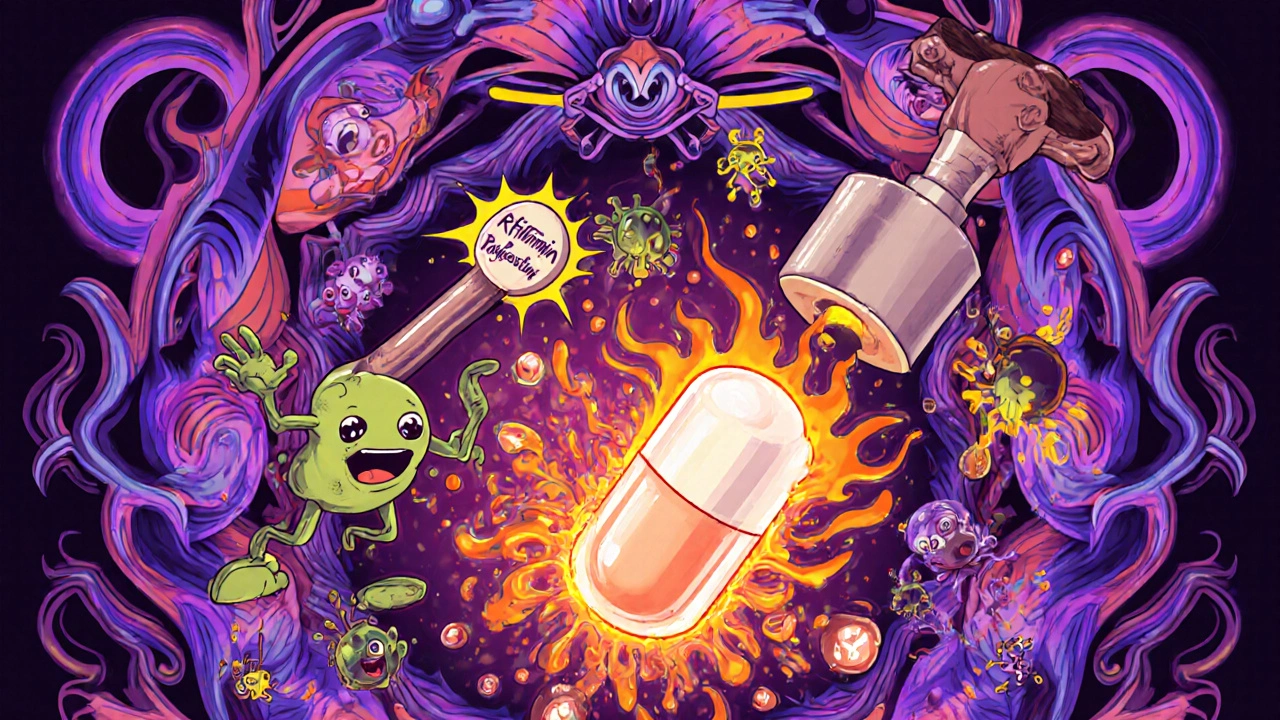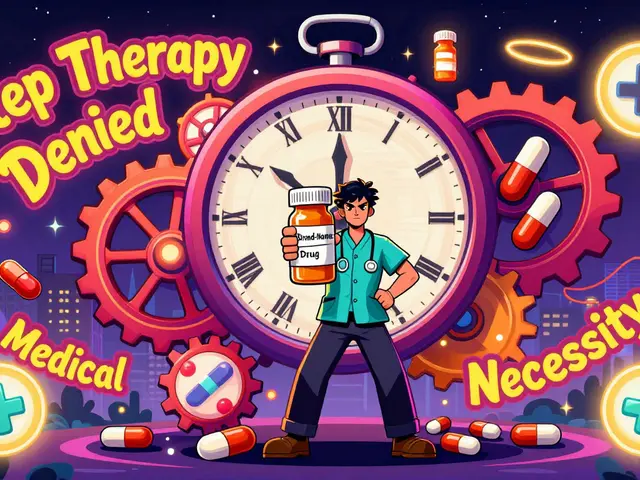Rifampin Enzyme Induction: How It Affects Your Medications
When you take rifampin, a powerful antibiotic used to treat tuberculosis and other bacterial infections. Also known as Rifadin, it doesn’t just kill bacteria—it forces your liver to speed up how it breaks down other drugs. This is called enzyme induction, and it’s one of the most common and dangerous reasons medications suddenly stop working.
Rifampin turns on enzymes in your liver, especially the CYP450 system, which is responsible for metabolizing over half of all prescription drugs. That means if you’re on birth control, blood thinners, HIV meds, or even some antidepressants, rifampin can make your body clear them out too fast. The result? Your treatment fails. A woman on the pill gets pregnant. A person with HIV develops drug resistance. A clotting disorder flares up because warfarin no longer works. These aren’t rare cases—they happen every day, and most people don’t see it coming.
It’s not just about rifampin itself. The real risk comes from stacking it with other drugs that rely on the same liver pathways. For example, if you’re taking rifampin and a statin for cholesterol, your cholesterol might spike because the statin vanishes from your system. Or if you’re on an antifungal or seizure medication, the dose you’ve been stable on for months suddenly becomes useless. This isn’t guesswork. Doctors have known about this for decades. But patients? Most never hear a warning until something goes wrong.
What makes this even trickier is that enzyme induction doesn’t happen right away. It takes days to build up. And it lingers for weeks after you stop rifampin. So even if you stop the antibiotic, your other meds might still be affected. That’s why timing matters. Switching drugs too soon after rifampin can be just as risky as taking them together.
There’s no way around it: if you’re prescribed rifampin, you need to talk to your pharmacist. Bring a full list of everything you take—even vitamins, supplements, and over-the-counter painkillers. Ask: "Will this interfere with my other meds?" They’ll know which ones are risky and what alternatives exist. Sometimes, a different antibiotic can be used. Other times, doses need adjusting. But skipping the conversation? That’s how side effects turn into emergencies.
Below, you’ll find real patient stories and clinical guides about how drug interactions like rifampin enzyme induction play out in everyday care—from kidney disease and HIV treatment to pain management and mental health. These aren’t theory pieces. They’re practical checklists, comparisons, and warnings from people who’ve been there. You don’t need to be a scientist to understand this. You just need to know what to ask.
Rifampin and Birth Control: What You Need to Know About Contraceptive Failure Risks
Rifampin can make birth control fail by speeding up hormone breakdown. Learn why only rifampin causes this risk, how long to use backup contraception, and what other antibiotics are safe.





